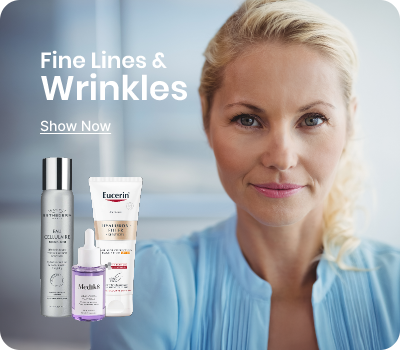
For those with sensitive skin, the quest for effective anti-ageing solutions often feels like navigating a minefield—traditional retinol, while transformative, can come with redness, peeling, and irritation that outweigh its benefits. But what if you could achieve smoother, brighter skin without the discomfort? Enter plant-based retinol alternatives: nature’s answer to gentle yet potent skincare. Harnessing the power of botanicals, these innovative ingredients deliver collagen-boosting, wrinkle-reducing results while soothing and protecting delicate complexions. In this guide, we’ll explore the science behind these skin-loving alternatives, decode which ones work best for your unique needs, and share expert tips for integrating them into a calming, effective routine. Get ready to redefine what “sensitive skin-friendly” actives can do—your glow awaits, minus the irritation.
What Makes Sensitive Skin Unique and Why It Needs Special Care
Sensitive skin is not a singular condition but rather a spectrum of reactions that can include redness, burning, dryness, and flaking. This skin type is more reactive to environmental triggers, allergens, and potent active ingredients. The skin barrier in sensitive individuals is often compromised, meaning it is less able to retain moisture and more prone to inflammation. As a result, it demands a more cautious, nurturing approach. Products must soothe and protect while still delivering results—a balance that's delicate to achieve.
The Limitations of Traditional Retinol for Delicate Complexions
Retinol, the gold standard in anti-ageing, is renowned for its ability to boost cell turnover, unclog pores, and reduce the appearance of fine lines and wrinkles. However, its potency often comes at a cost: peeling, dryness, redness, and increased sun sensitivity. For individuals with sensitive skin, these side effects can be intolerable, disrupting the skin's equilibrium and causing more harm than good. The search for gentler, plant-based options is not just about preference—it's a necessity.
Why Plant-Based Alternatives Are Gaining Popularity in Modern Skincare
Consumers are more informed than ever. With a heightened awareness of ingredient safety, sustainability, and long-term skin health, there has been a significant pivot towards botanical alternatives. Plant-based retinol analogs offer a kinder approach. They replicate many of retinol's benefits but with a much lower risk of irritation. Beyond that, they align with the growing movement toward clean beauty—ethically sourced, minimally processed, and environmentally mindful.
Understanding Retinol and Its Impact on the Skin
Retinol, a derivative of vitamin A, accelerates cellular turnover and stimulates collagen production. This action helps diminish signs of ageing, smooth skin texture, and treat acne. Despite its transformative potential, retinol is inherently unstable and can be harsh. While it works wonders for some, it can wreak havoc on those with more delicate skin.
How Retinol Affects Sensitive Skin: Peeling, Redness, and Irritation
For sensitive skin types, retinol often acts as an aggressor due to its potent exfoliating properties:
- Peeling and Flaking: Retinol accelerates cell turnover, sloughing away dead skin cells faster than sensitive skin can adapt. This can lead to visible peeling, dryness, and a rough, uneven texture.
- Redness and Inflammation: The ingredient can trigger vasodilation, causing temporary redness and a flushed appearance. In some cases, this may escalate into persistent irritation or even mild swelling.
The deeper effects of retinol further complicate its use for reactive skin:
- Barrier Impairment: By stripping away essential lipids, retinol weakens the skin's protective barrier, making it more vulnerable to environmental irritants and moisture loss.
- Burning and Itching: As the barrier function declines, nerve endings may become hyperexposed, leading to stinging, itching, or a sensation of heat—even with gentle products.
While retinol’s efficacy is undeniable, its intensity often makes it a challenging ingredient for those with delicate or easily inflamed skin.
The Search for Safer, Nature-Derived Alternatives
The demand for gentler solutions has catalysed the rise of nature-derived actives that mimic retinol's benefits. Plant-based retinol alternatives stimulate collagen synthesis and promote cell regeneration in a far gentler way. They offer anti-ageing and brightening benefits while preserving the skin's natural balance. These ingredients work in harmony with the skin, rather than against it.
Botanical alternatives often contain naturally occurring forms of vitamin A, antioxidants, and essential fatty acids that support skin renewal. Their antioxidant profile helps neutralise free radicals, which contribute to premature ageing. Regular use can result in firmer, smoother skin—without the discomfort.
What sets plant-based actives apart is their dual function: they not only deliver anti-ageing benefits but also calm the skin. These ingredients contain anti-inflammatory compounds that reduce redness and support barrier function, making them ideal for ongoing use.
Top Natural Plant-Based Retinol Alternatives to Know
Bakuchiol: The Star Botanical That Rivals Retinol
Bakuchiol, extracted from the seeds and leaves of the Psoralea corylifolia plant, has gained recognition as a powerful botanical alternative to retinol. Research indicates that it delivers similar anti-ageing benefits, such as diminishing fine lines and improving skin elasticity, but with a far gentler approach. Unlike retinol, bakuchiol works in harmony with even the most reactive skin types, making it an ideal choice for those who want effective results without the discomfort. Its ability to stimulate collagen and accelerate cell renewal mirrors retinol’s mechanisms, yet it does so without provoking inflammation or compromising the skin barrier.
Bakuchiol’s antioxidant and anti-inflammatory properties further enhance its appeal, as it not only smooths wrinkles but also soothes redness and protects against environmental damage. Its versatility allows it to be used daily, even on sensitive or acne-prone skin, without the need for lengthy adjustment periods. As more studies confirm its efficacy, bakuchiol solidifies its status as a star ingredient—offering transformative results with none of the typical retinol-related drawbacks.
Rosehip Seed Oil: Rich in Vitamins A and C for Regeneration
This oil is packed with provitamin A and vitamin C, two powerhouse ingredients known for their ability to revitalise and renew the skin. Provitamin A gently encourages cellular turnover, helping to reveal a fresher, more radiant complexion while reducing the appearance of fine lines and uneven texture. Meanwhile, vitamin C brightens the skin, targeting dark spots and pigmentation while boosting collagen production for improved firmness and elasticity. The combination of these nutrients makes this oil a multitasking treatment that addresses multiple signs of ageing and skin fatigue in one step.
Despite its rich nutrient profile, the oil has a surprisingly lightweight texture that absorbs quickly without leaving a greasy residue. This makes it incredibly versatile—it can be seamlessly layered under thicker moisturisers for added nourishment or mixed into serums for an antioxidant boost. Whether used alone or blended with other products, this oil delivers potent rejuvenation while maintaining a comfortable, breathable feel on the skin.
Sea Buckthorn Oil: A Nutrient-Dense Powerhouse for Skin Repair
Sea buckthorn oil is a remarkable botanical extract, brimming with rare omega-7 fatty acids, potent carotenoids, and a robust array of antioxidants. These deeply nourishing compounds work synergistically to repair damaged skin, strengthen the moisture barrier, and shield against free radicals that contribute to premature ageing. Its high palmitoleic acid content makes it especially effective at soothing irritation and promoting tissue regeneration, making it a go-to for conditions like eczema, sun damage, or post-inflammatory redness. Beyond its reparative benefits, the oil’s antioxidant richness helps neutralise environmental aggressors like pollution and UV exposure, preventing further degradation of skin health.
What sets sea buckthorn oil apart is its ability to deliver intense healing without overwhelming delicate skin. Its anti-inflammatory properties calm flare-ups and reduce sensitivity, making it ideal for reactive or compromised skin barriers. Additionally, the natural carotenoids lend a subtle brightening effect, helping to even out skin tone over time. Whether used as a targeted treatment or blended into daily skincare, sea buckthorn oil stands out as a multitasking elixir for restoring resilience and vitality to stressed, fatigued skin.
Carrot Seed Oil: A Gentle Brightener for Dull, Sensitive Skin
Carrot seed oil is a potent botanical extract rich in beta-carotene, a precursor to vitamin A that helps stimulate cell renewal and promote a more radiant complexion. Alongside its high levels of vitamins E and C, this oil works to neutralise free radicals, fade hyperpigmentation, and improve overall skin texture. The combination of these nutrients makes it particularly effective at reviving dull, fatigued skin, restoring a healthy glow while providing antioxidant protection against environmental stressors.
Beyond its brightening and rejuvenating properties, carrot seed oil offers subtle yet valuable antimicrobial benefits, making it a supportive ingredient for those with acne-prone or easily congested skin. The oil’s natural compounds help maintain a balanced microbiome while soothing minor inflammation, reducing the likelihood of breakouts. Whether used as a facial oil, mixed into serums, or applied as a targeted treatment, carrot seed oil enhances skin resilience while imparting a revitalised, even-toned appearance.
Alfalfa Extract and Moth Bean: Lesser-Known Yet Highly Potent Retinol Replacements
Alfalfa extract and moth bean (Vigna aconitifolia) may not yet be household names, but they are quietly revolutionising plant-based skincare with their impressive biomimetic properties. Alfalfa extract, derived from the nutrient-dense Medicago sativa plant, contains bioactive compounds that mimic retinol's ability to boost cellular turnover without causing irritation. Similarly, moth bean—a drought-resistant legume traditionally used in Ayurveda—is packed with natural peptides that communicate with skin cells to encourage collagen synthesis and improve elasticity.
As research continues to validate their efficacy, these understated powerhouses are proving that gentle yet transformative skincare doesn't require compromise—offering a soothing alternative to traditional actives while delivering comparable rejuvenating benefits.
How to Choose the Right Retinol Alternative for Your Skin Type

Finding the ideal plant-based retinol alternative requires careful consideration of your skin’s unique needs and sensitivities. The effectiveness of botanical actives depends on selecting formulations that complement—rather than compromise—your skin’s balance. Keep these key factors in mind to build a regimen that nurtures as it renews:
- Understanding your sensitivity triggers: Sensitive skin often reacts to more than just active ingredients. Fragrance, harsh essential oils, and improper pH levels can all provoke flare-ups. Choosing products free from synthetic fragrances and aligned with the skin’s natural pH is crucial.
- Reading ingredient labels: Look for formulations that feature high-quality botanical extracts in meaningful concentrations. Avoid known irritants such as alcohol denat., sulfates, and unnecessary fillers. Transparency in ingredient sourcing and testing is also a positive sign of product integrity.
- Pairing plant-based retinols with hydrators: To optimise results and comfort, pair botanical actives with hydrating companions like hyaluronic acid, squalane, or ceramides. This synergy enhances the delivery of nutrients while reinforcing the skin’s protective barrier.
Best Practices for Using Plant-Based Retinol Alternatives
Transitioning to plant-based retinol alternatives can deliver transformative results with minimal irritation—when used correctly. Follow these guidelines to integrate them seamlessly into your routine:
- Staring Slowly: Begin with application two to three times a week to monitor skin response. Once tolerance is established, frequency can be increased gradually. Always patch-test new products before full application.
- Layering Tips: Apply plant-based retinol alternatives after cleansing and before heavier moisturisers or oils. Avoid using alongside other potent exfoliants or actives initially to prevent overwhelming the skin.
- Night vs. Day Application: While many botanical alternatives are photostable, night-time application allows the skin to regenerate without interference from environmental stressors. However, they can also be used during the day when paired with sunscreen.
Complementary Skincare Tips for Sensitive Skin Users
Supporting Botanicals: Chamomile, Calendula, and Centella Asiatica
Chamomile, calendula, and centella asiatica serve as invaluable supporting botanicals that complement plant-based retinol alternatives by delivering potent anti-inflammatory and skin-soothing benefits, creating a balanced approach to skin renewal:
- Chamomile, rich in bisabolol and flavonoids, calms irritation and reduces redness while reinforcing the skin's natural barrier function.
- Calendula, with its healing triterpenoids and carotenoids, promotes wound repair and provides antioxidant protection against environmental stressors.
- Centella asiatica, containing asiaticoside and madecassoside, stimulates collagen synthesis while dramatically improving hydration and resilience.
Together, these botanicals form a protective network that mitigates potential sensitivity from active ingredients while enhancing their efficacy, resulting in a comprehensive system that soothes as it renews, protects as it repairs, and ultimately elevates the performance of plant-based retinoids.
The Importance of a Consistent, Minimalist Routine
For sensitive skin types, maintaining a consistent and minimalist skincare routine is crucial for achieving and maintaining a healthy, balanced complexion, as frequent product changes or an overload of active ingredients can disrupt the skin's delicate barrier and trigger irritation, redness, or breakouts. By focusing on a simplified regimen with carefully selected, complementary ingredients that work synergistically—such as gentle cleansers, soothing botanicals, and targeted treatments—the skin is able to function optimally without unnecessary stress, allowing for gradual improvement in texture, resilience, and overall clarity. This approach not only minimises the risk of adverse reactions but also supports the skin's natural repair processes, fostering long-term calm and radiance.
SPF Protection: Safeguarding Your Skin While Using Actives
When incorporating any active ingredients into your skincare routine—whether potent retinoids or gentler plant-based alternatives—consistent sun protection becomes absolutely essential, as even mild actives can increase photosensitivity and compromise the skin's natural defences against harmful UV radiation.
A high-quality, broad-spectrum SPF 30 or higher should be applied daily as the final step in your morning regimen, creating a protective shield that prevents sun-induced damage like hyperpigmentation, collagen breakdown, and premature ageing. This diligent approach to sun care doesn't just prevent setbacks—it actively enhances and prolongs the benefits of your entire skincare routine by maintaining skin health at the cellular level, ensuring that your investment in actives translates to lasting, visible improvements rather than temporary fixes.
Conclusion: Embracing Plant-Powered Radiance for Sensitive Skin
As the demand for non-toxic, high-performing skincare continues to rise, the future belongs to formulations that merge botanical wisdom with scientific precision. Plant-based retinol alternatives offer a luxurious middle ground—efficacy without aggression, glow without gamble. They allow sensitive skin types to pursue their skincare goals confidently.
As you embrace these alternatives, remember: consistency is your ally, simplicity your guide, and SPF your non-negotiable shield. Ready to transform your routine? Start with one gentle alternative today and let your skin thrive - your journey to calm, radiant skin begins now.





